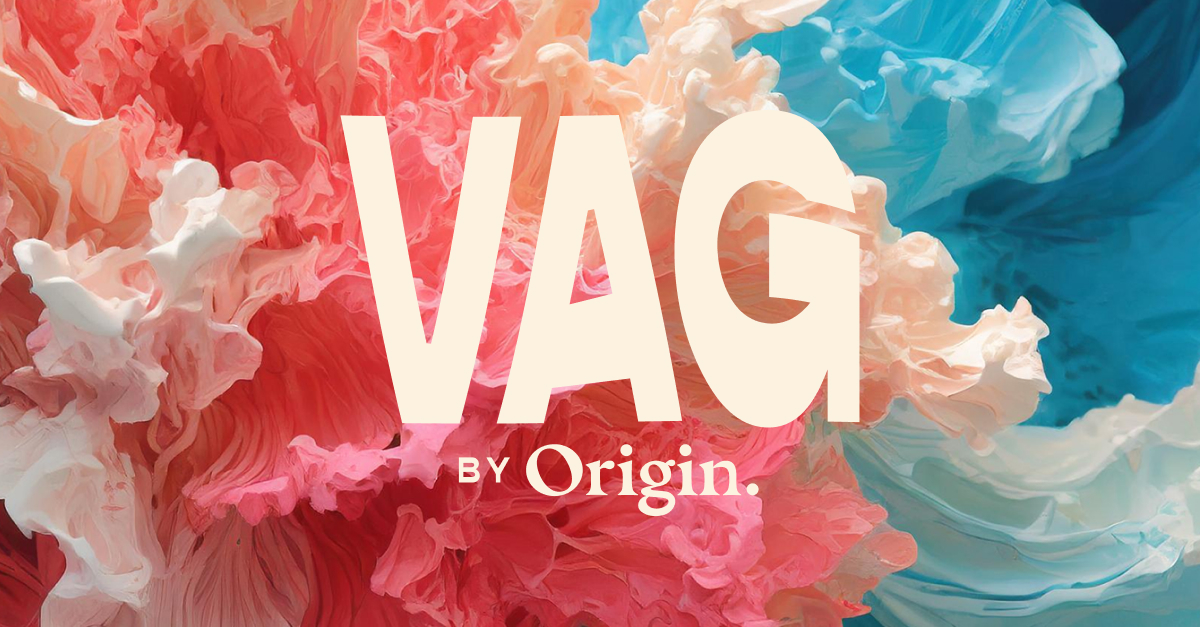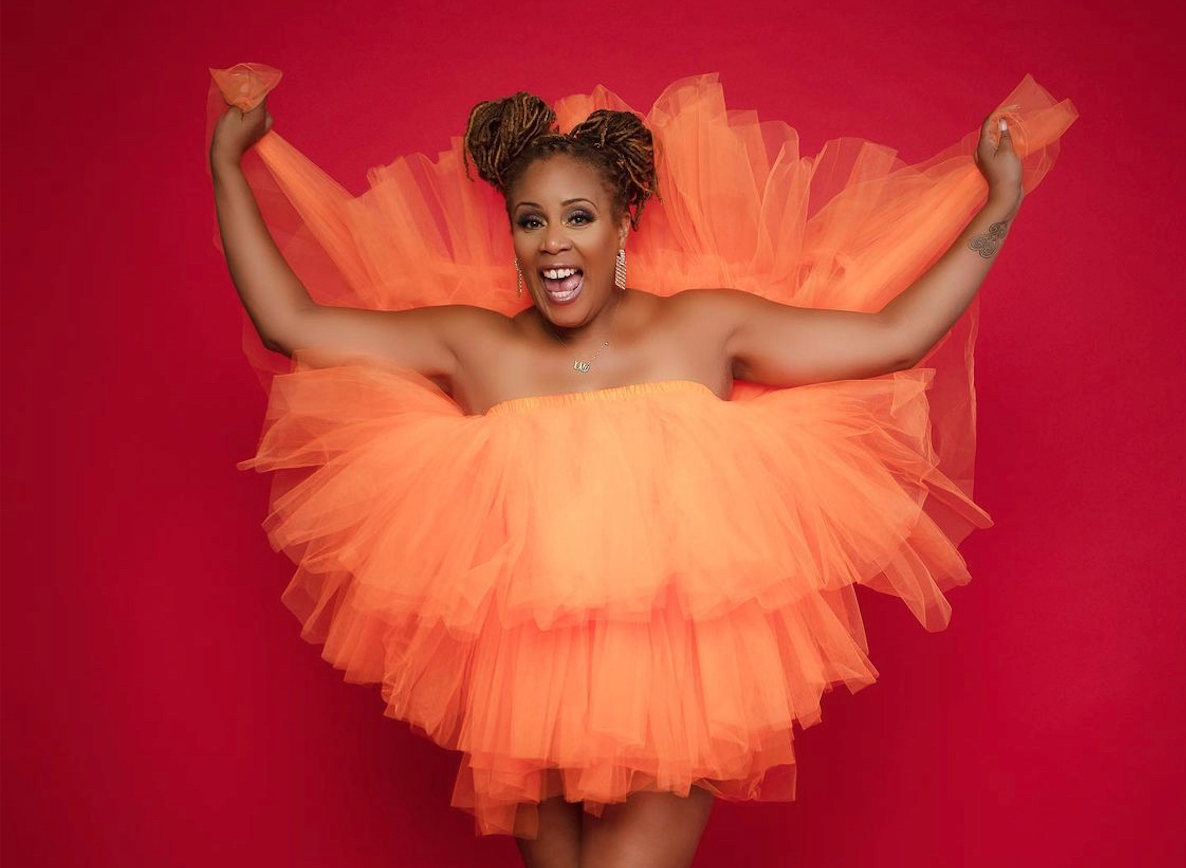
Here’s a sobering fact – the 2024 U.S. presidential election will be the first in over 50 years where access to abortion does not exist in all 50 states. ICYMI, Roe v Wade was overturned in the 2022 U.S. Supreme Court Dobbs decision, putting all reproductive decisions on the line this November.
But that’s not the end of the narrative (thank the goddesses!) and we have the chance to win on some major issues at the polls. Abortion has become a winning issue since the Dobbs decision, where 7 state ballot measures voted to to protect access. A dozen more are said to do the same in November. A record 69% of Americans think abortion should be legal.
However, in a divided culture where the constant onslaught of news can be overwhelming and depressing, where can we find courage and inspiration for the upcoming election? For the GTHQ team, a fire has been lit inside us by following the work of Christian F. Nunes, the president of the National Organization for Women (NOW), which is America’s largest women’s group. As the youngest person of color to serve as President of this historic and iconic feminist organization, she is leading the organization through an intersectional lens, bringing a diverse coalition of grassroots activists to work against structural sexism and racism.
Along with her activism, Christian is a mental health expert, and a woman-minority business owner. She is an active community organizer and public speaker, regularly featured at events such as the March for Black Women, Women’s March Events, and rallies around the country in support of the Equal Rights Amendment and immigration rights. Christian has more than 20 years of experience advocating for children’s and women’s issues.
Since assuming a leadership role at NOW, Christian has launched key initiatives such as the Unlock the Future campaign, which demands humane treatment for detained immigrant families, in particular women and girls seeking refuge from sexual violence, assault, and poverty. She led the creation of a Bill of Rights for Immigrant Women and Girls, launched NOW’s Racial Justice Summit in 2020 and has recently launched the 100 days of the Feminist Agenda Campaign in partnership with Black Women’s Blueprint. We are also loving the powerful conversations Christian facilities through the ‘Feminism NOW’ podcast series that she hosts for the organization.
There is clearly a lot of work to be done to ensure everyone has bodily autonomy and freedom from violence and oppression. And we take comfort knowing that leaders like Christian are paving the way ahead. To get us motivated at the polls in the coming months, we spoke to Christian about her experience in leadership, how she is working to bring more feminist voters to the polls, and why abortion and social justice are cornerstone issues in the work NOW is currently doing.

When did you begin working with NOW, and what drew you to this organization initially?
I officially began my role as President of the National Organization for Women (NOW) in August 2020 and Vice President in 2019. This organization’s longstanding commitment to defending women’s rights and fighting for equality drew me way before my official roles. NOW has been at the forefront of significant advancements in women’s rights since its founding in 1966, and I wanted to contribute to its mission and lead the organization in addressing contemporary challenges. As a Black woman, my connection to women’s and children’s communities goes beyond a professional commitment – it’s a personal calling. My commitment to these causes has been shaped by the challenges I’ve faced and overcome.
You have spent your life advocating for women’s and children’s issues and are heavily involved in organizations and events that champion these issues. Why are they important to you?
As a Black woman and mother to a young Black son, advocating for women’s and children’s issues is deeply personal to me. I recognize the multiple oppressions that marginalized communities face due to intersecting identities. As advocates, we must address systemic inequities to ensure that we all have equal access to freedom. One of the things I make sure to include in this fight is mental health, knowing mental wellness is central to a stable and fulfilling life.
As a licensed clinical social worker with a background in behavioral health, I value the importance of mental well-being. I spent years advocating for women’s and children’s issues because they have always been the two groups most underserved and underrepresented. They are most directly impacted by violence, abuse, trauma, and social injustices. When you look at statistics, women and children bear the burden of harm, but there is a lack of research, resources, and visibility. It is important to me to help be a resource and an advocate.
What does it mean to be an organizer, and how does this differ from an activist?
Being an organizer means actively engaging in strategic planning and mobilizing communities to bring about real social and political change. It involves coordinating efforts, building coalitions, and leading grassroots activists to address structural sexism and racism. Activists are the foundation of bringing about change by raising awareness and advocating for specific causes. Organizers take a more comprehensive approach, working to implement tangible solutions and create lasting impact through sustained efforts and collaboration.
Racial justice is also an important aspect of your work, something that has been called out as missing from a lot of the mainstream feminist work in the United States. How are you bringing attention to this intersectional need within NOW and the work you all do?
Racial justice is a very important aspect of my work at NOW because vital intersectionality is often missing from mainstream feminist initiatives in the United States. I have implemented several initiatives within NOW to address this gap and ensure a more inclusive and comprehensive approach.
In 2019, I authored NOW’s national resolution for organizational-wide Diversity, Equity, and Inclusion (DEI) training, recognizing the importance of fostering a more inclusive environment within NOW. Later that year, I led the creation of a Bill of Rights for Immigrant Women and Girls, highlighting the unique challenges faced by immigrant communities, particularly women and girls. This initiative underscored the intersectionality of gender, race, and immigration status, advocating for policies that address the specific needs of these individuals.
In early 2020, I launched NOW’s Racial Justice Summit, providing a platform to explore the intersecting oppressions experienced by women and communities of color. This summit ensured that their voices were heard and actively incorporated into our advocacy efforts, fostering an inclusive approach to addressing systemic inequalities.
Additionally, I initiated the 100 Days of the Feminist Agenda Campaign in collaboration with Black Women’s Blueprint. This campaign highlighted the struggles of women of color, urging the Biden-Harris administration to prioritize their concerns in the White House’s agenda. In February 2023, I organized the Healing is Resistance- Restorative Path to Mental Health in the Black Community Townhall to discuss solutions and actions that will heal the Black community.
2024 is an election year, and abortion is going to be a big issue, given the dozen or so states that will have ballot measures to vote on. Can you tell us more about the outreach and initiatives NOW is working on to champion reproductive rights and health?
As part of NOW’s initiatives, we are actively involved in countering threats including attempts to repeal the Affordable Care Act (ACA), implement the Targeted Regulation of Abortion Providers (TRAP) laws, impose abortion bans, and roll back access to birth control. Reproductive justice is not just a matter of choice but a critical issue of life and death for women.
NOW endorsed and supported crucial federal bills like the Women’s Health Protection Act 2023 and the Abortion Care for Everyone Act 2023. These legislative measures are essential in safeguarding reproductive rights and ensuring access to comprehensive healthcare for all individuals.
Moreover, we are committed to fostering civic engagement through our Foundation’s Get Out the Vote (GOTV) grant program. Through this program, we provide grants to encourage education and awareness around our core issues, including reproductive justice. By working with coalition partners, the White House, and supportive members of Congress, we aim to empower individuals to demand bodily autonomy and freedom to make their own healthcare decisions.
The recent endorsement by NOW PAC of President Joe Biden and Vice President Kamala Harris for re-election in 2024 underscores this organization’s commitment to support leaders who prioritize women’s equality and rights. The Biden-Harris administration has demonstrated its dedication to women’s issues through tangible actions, including creating the Gender Policy Council, assembling a diverse and qualified Cabinet, pushing for the codification of Roe, and nominating the first Black woman for U.S. Supreme Court Justice.
To ensure reproductive justice for all women NOW believes in a multifaceted strategy that encompasses winning and preserving legal protections, expanding reproductive health services in every community, and combating discrimination and inequality that hinder women, especially from BIPOC and marginalized communities, from controlling their own reproductive lives. We remain dedicated to continuing to push back against the underhanded tactics employed by extremist politicians to limit access to reproductive healthcare, particularly impacting low-income women, rural women, women of color, and the LGBTQIA+ community.
It feels absurd that we even have to ask this question, but can you explain the importance of ensuring access to abortion and how it impacts all other reproductive healthcare decisions?
Ensuring access to abortion is paramount for safeguarding reproductive rights and, by extension, women’s autonomy over their bodies. The significance of abortion access becomes even more apparent when viewed in the context of comprehensive reproductive healthcare. It is not an isolated issue but is intricately linked to various aspects of reproductive health. Restricting access to abortion not only jeopardizes reproductive autonomy but also puts the overall health of individuals at risk. Lack of access can lead to unsafe and clandestine procedures, resulting in severe health consequences for those seeking abortion services.
The impact of abortion access resonates across diverse demographics and socioeconomic backgrounds. Restrictions disproportionately affect communities of color, exacerbating existing health disparities. Furthermore, the importance of access to abortion is evident in its contribution to family planning. Abortion is one of the many components of comprehensive reproductive healthcare, allowing individuals and families to make informed decisions about the size and health of their families. By providing access to abortion, we empower individuals to plan and control their reproductive journeys, fostering healthier family dynamics and overall well-being.
In the end, women cannot be free and equal if our right to protect our own bodies is taken away. And quite frankly, we will not stop fighting until this right is restored and codified in law.

Since the 2016 presidential election, we’ve seen a major surge in the number of female, minority, and LGBTQ candidates across the country, as well as female voters playing a deciding role in crucial races. Why is it important that our political representatives represent the diversity across this country, and how is NOW working to ensure this continued progress?
Representation matters because diverse perspectives lead to more inclusive policies and decisions because the unique challenges faced by different communities are considered and matter. When our political leaders reflect the diversity of the population, they are better equipped to understand and respond to the needs of our diverse country, fostering a more just and equitable society. It also inspires greater civic engagement, as individuals from underrepresented communities see themselves reflected in the political process, encouraging them to participate and advocate for their interests.
NOW is actively working to ensure the continued progress in this direction. By endorsing candidates who prioritize women’s issues and have a track record of promoting diversity and equality, we contribute to the ongoing progress in political representation. Our grassroots movement, with more than 100,000 members and supporters, plays a vital role in mobilizing and turning out voters. The 2024 election is particularly consequential, and NOW is actively organizing across the country to ensure that women’s rights, from equality to abortion and contraception to healthcare access and LGBTQ+ protection, remain a top priority.
As we are in Black History Month, can you tell us the significance of being the youngest woman of color president in NOW’s history and the second African American president? Why does this matter today, in a climate where there is so much pushback on DEI, and women of color leaders are under attack in major institutions?
Firstly, my role signifies a shift towards greater inclusivity and representation within NOW. As an organization dedicated to advocating for women’s rights, my presidency reflects a commitment to embodying the diversity of the women we serve. This representation matters because it challenges traditional power structures and ensures that the leadership of NOW reflects the richness and complexity of the experiences of women of color.
In a broader context, my position as the youngest woman of color and the second African American president is a testament to the resilience and achievements of women of color in leadership roles. It defies stereotypes and preconceived notions about who can lead and affect change. This visibility is crucial not only for inspiring the next generation of leaders but also for dismantling systemic barriers that hinder the progress of women of color.
My presidency symbolizes resistance and progress in a climate where DEI efforts face pushback and women of color leaders encounter challenges in major institutions. By breaking barriers, I am contributing to the normalization of women of color in leadership roles and fostering a more inclusive environment where diverse voices are not only welcomed but truly valued.
The hurdles standing in the way of women of color leaders in major institutions highlight the need for persistent efforts to overcome systemic biases and discriminatory practices. My role as president is a call to action, emphasizing that diverse leadership is a moral imperative and a strategic advantage. Organizations and institutions benefit from various perspectives and experiences, leading to more innovative and effective solutions to complex issues. Organizations need to embrace this change and create a safe space for Black women to lead successfully and feel supported in the organizations that they lead.
How do you define feminism today, and why is it important to you?
Feminism is about achieving gender equity and justice for all. It’s not just advocating for the rights and opportunities of women; it’s about dismantling the foundational barriers that perpetuate inequality. Today, feminism must embrace an intersectional lens, recognizing and addressing the interconnected nature of the various forms of oppression.
It is important to me because I know the importance of fighting for equity and justice. Intersectional feminism is a guiding force in my work, and as Audre Lorde wisely said, “If I didn’t define myself for myself, I would be crunched into other people’s fantasies for me and eaten alive.” This quote reflects my commitment to defining my own path and advocating for a world where everyone can do the same.
You can learn more about the work that Christian F. Nunes is doing at NOW on the website. Follow them on Instagram and Twitter, and subscribe to the Feminism NOW podcast, hosted by Christian herself!

















